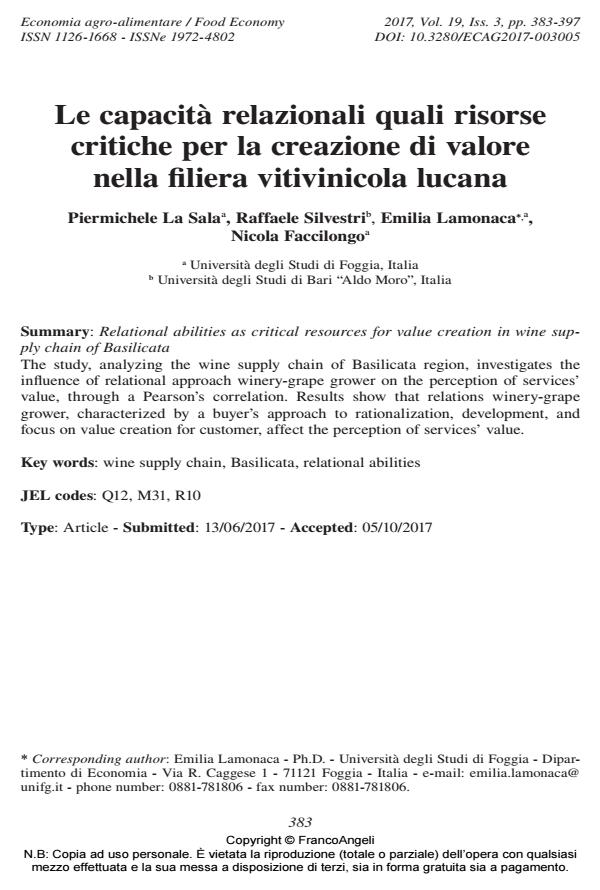Le capacità relazionali quali risorse critiche per la creazione di valore nella filiera vitivinicola lucana
Journal title ECONOMIA AGRO-ALIMENTARE
Author/s Piermichele La Sala, Raffaele Silvestri, Emilia Lamonaca, Nicola Faccilongo
Publishing Year 2017 Issue 2017/3
Language Italian Pages 16 P. 383-398 File size 189 KB
DOI 10.3280/ECAG2017-003005
DOI is like a bar code for intellectual property: to have more infomation
click here
Below, you can see the article first page
If you want to buy this article in PDF format, you can do it, following the instructions to buy download credits

FrancoAngeli is member of Publishers International Linking Association, Inc (PILA), a not-for-profit association which run the CrossRef service enabling links to and from online scholarly content.
Relational abilities as critical resources for value creation in wine supply chain of Basilicata The study, analyzing the wine supply chain of Basilicata region, investigates the influence of relational approach winery-grape grower on the perception of services’ value, through a Pearson’s correlation. Results show that relations winery-grape grower, characterized by a buyer’s approach to rationalization, development, and focus on value creation for customer, affect the perception of services’ value.
Keywords: Wine supply chain, Basilicata, relational abilities
Jel codes: Q12, M31, R10
- Ecosystem for Successful Agriculture. Collaborative Approach as a Driver for Agricultural Development Nino Adamashvili, Mariantonietta Fiore, Francesco Contò, Piermichele La Sala, in European Countryside /2020 pp.242
DOI: 10.2478/euco-2020-0014
Piermichele La Sala, Raffaele Silvestri, Emilia Lamonaca, Nicola Faccilongo, Le capacità relazionali quali risorse critiche per la creazione di valore nella filiera vitivinicola lucana in "ECONOMIA AGRO-ALIMENTARE" 3/2017, pp 383-398, DOI: 10.3280/ECAG2017-003005